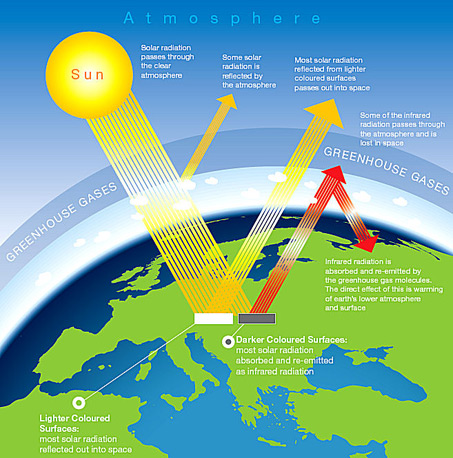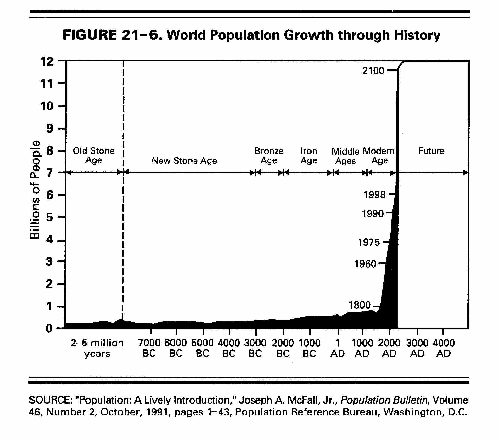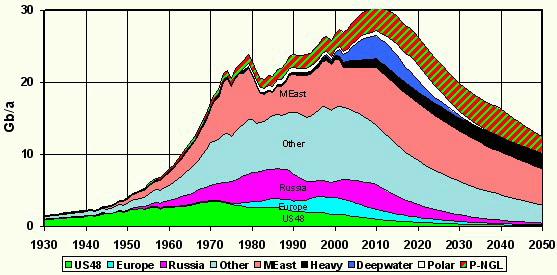Home | Problems | Solutions | Is It Possible? | Contact Tom
A MODEST PROPOSAL
(or How to Save the World from American Greed with a Carbon Tax)
THE BOTTOM LINE STOPPING GOBAL
WARMING IS THAT W MUST LEAVE THEM IN THE GROUND
So, what's the Problem???
The U.S. is putting more pollutants into the air per person than any
country. We have run out of petroleum and are mortgaging our future to the oil producing
countries. Beyond that, in our desperation, we are going to war, and all that implies, just so we
can "stay the course."
We are now essentially burning food and mining our
cropland to run through our SUVS and to snap our necks as we get on the freeway. At least 1/2 of
our energy use is really quite optional at several levels.
Global Warming Is Real
Here is a link to an visual explanation to Global Warming and data to support it.

Can we tell what the government wants us to do by the way it taxes us?
Presently our government is taxing our labor and initiative through income tax. The
harder and smarter we work and invest the more it wants. Let us
start paying for the cost of the choices we make. IIs it clear our government wants us to
work less and be less resourceful in our investments? At the other end of the spectrum, no
politico will even think of getting needed revenue from gasoline taxes or taxes on polluting
power generators. Neither the "tax and spend
Demos" or the"no more
taxes"
Republicans dare mention a BTU tax. Now go look up Revenue Neutral
Carbon Tax
. Note: the Carbon Tax and BTU Tax are similar, the Carbon Tax deals more with
fossil fuels and is more related to the green house gases they produce. For more on the the Political, social and technical complications to the
problem
The Problems With Using Fossil Fuels
The scope of the problem
Greek and Roman civilizations were built on backs of slaves captured from endless wars of expansion. The middle ages and Eastern Civilizations were built on the backs of serfs or their equivalent. Our modern civilization is built on energy primarily from fossil fuels. The world population is now 6.6 B. and by 2050 is expected to be 9 B. Most of the population live in huge cities (the top ten have populations of over 10m) and many of those near the coast.
Energy Sources and consumption
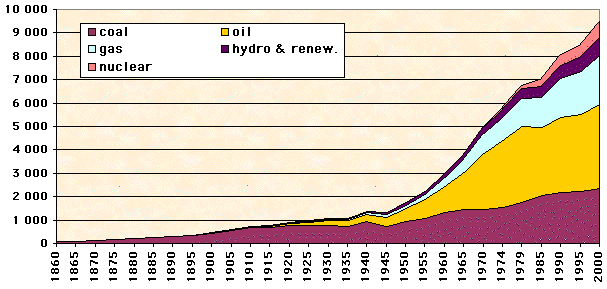
Presently and for many years to come, these cities cannot exist without fossil fuels. Our crop production, which is the basis of supporting cities is highly dependent on fossil fuels for fertilizer, pest control, working the land, and transportation to the cities. Besides internal transportation and pumped water supplies, cities have high-rises that do not function without air conditioning, elevators, and waste disposal. No Government will let their cities collapse for lack of energy. This is on top of the problems of global warming caused by burning fossil fuels and the resulting sea rise that will wipe out many cities and countries. A nuclear war triggered by a conflict over limited petroleum resources will be much more devastating to the environment than global warming, which will cause populations stresses that will cause wars. We are already involved in a war in the Middle East that has a significant component of securing our oil resources abroad.
Political, social and technical complications to the problem
There are options to using fossil fuels (coal, oil, natural gas). These solutions include nuclear power, solar power, biofuels, wind power, and water power. Each has its special problem. Nuclear power's problem is the radio active waste and implied risk. The problem with bio power in the form of ethanol is that it takes almost a calorie of oil to produce a calorie of corn, and we need the crop land to feed an ever expanding population. Wind and solar are both expensive compared to natural gas and petroleum. Land that will produce switchgrass, a more viable source of ethanol, could be grazed for food more effectively. Everyone, maybe all 6b people on earth, want to live in a big, well-lighted, air conditions house; drive around in a 300 horsepower vehicle, live in an exciting city, and take trips for pleasure. Only in America do you have an excellent chance of doing it all.
One estimate of peak oil
We live in a democracy and get to elect leaders that promise to keep it that way. How long they can do this is problematic. It is agreed that the world will eventually run out of oil. The switch to coal, which the U.S. has plenty of, will be costly to our environment. The dreaded timeline of "Peak Oil" is disputed, but it has been moved up at ever increasing rate with the development of China and India. And if these issues were not enough, we have a large and expanding balance of payment debt. The Middle East and other oil producing countries buy very little from us, but we pay huge sums to them. This debt is ever expanding. For now, they are recycling this debt into the U.S. Treasuries. They own our national debt and have an immense investment in our businesses. Our money is becoming less valuable to the point where they may no longer find America a place for investments. The problem is very complicated, but the results may lead to disruption of our own and world economies.
For more info about this, try mega disaster: Oil.
A Solution to the problems caused by fossil fuels,
Let's start paying for the cost of the choices we make!
If you are buying a new car and calculate what the car is going to cost over the life of the car, the big items are depreciation, followed by interest on the price, insurance, and repair, and way down the list is the gas the car will use. If we are interested in reducing imports of oil and reducing greenhouse gases, might it not be a better idea to put energy use at the top of the list of what will make us chose one car over another? Corrected for inflation gasoline has not gone up significantly in price since it was $1.25 per gal in 1980, and the mileage of the model T was 25 miles per gallon in 1908. We are not making much progress, and in the process, have used up all of our oil. A lot of people asked what they are going to do on their vacation or days off, they don't say it, but it is implied that they are going to drive around or fly around a lot.
How a Revenue Neutral Carbon Tax will help
We need a tax system that will encourage us to make hard immediate choices that will make things better for the long run. One of the most pressing needs is to wean our country off of imported fossil fuels without squeezing us into other problems. When we buy a car, we should be very aware of what that car is going to cost in its gas mileage. By just letting the price of gas float upward as we run out of oil, the large petroleum companies and the Middle East reap ever growing profits. In 2007 Exxon made a record profit for any industry ever. The Government will always need to collect taxes. If a slowly increasing tax on carbon consumption were implemented, the auto industry would manufacture and sell cars that will meet the demands for better mileage if they know that in the future gas is going to be too high for all but the very rich to afford. The "revenue neutral" part of this idea is to make it more palatable to those who want to lower taxes or raise taxes for other purposes. Republicans should be able to see this as a way to make our economy stronger by people making individual choices rather than government intervention, and liberals should see it as a way of making individuals think globally and be able to act locally toward a more environmentally responsible end. Here is Wikipedia's definition of a carbon tax:
A Carbon Tax is a tax on energy sources which emit carbon dioxide and methane. It is an example of a pollution tax, which some economists favor because they tax a "bad" rather than a "good" (such as income). Carbon taxes address a negative externality, and so are classed as Pigovian taxes - named after Arthur Pigou, who first proposed targeted taxation as a corrective to externalities..
Analysis of Optimal Carbon Tax
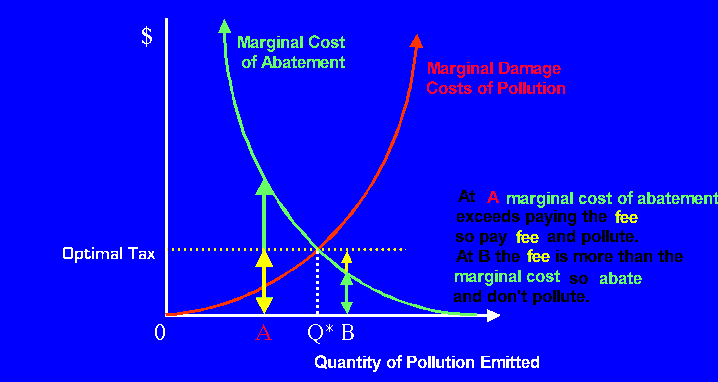
Below is an outline from Wikipedia, the free encyclopedia, on some of the issues of a carbon tax:
The [ ] are my summery of wikipedia 1 Background 1.1 Social cost of carbon [economic damages may = up to $43/ton of carbon in future social cost] 1.2 Equity Issues [it is not totally progressive but the wealthy use more carbon than the poor. The Poorest do not own cars and do not fly but use public transit.] 1.3 Border Issues [industries might migrate to no taxed state.. might require an importation tax on their products] 2 Tax Rates [the cost below are just to cover some of the social cost and is not just to wean us from imports] 2.1 Petroleum (motor gasoline, diesel, jet fuel)[About $8 per million BTU (about $.80 per gallon tax at the pump] 2.2 Natural gas [About $5.80 per million BTU] 2.3 Coal[About $11 per million BTU] 2.4 Electricity[depends on source above but About $.08 per KWh for coal, $03 per KWh for gas, 0 for solar] 3 Implementation [ even Al Gore gave up after the Republicans accused him of being a dangerous fanatic.]
Has a carbon tax ever been tried?
Yes, the following countries have some form of a carbon tax:
- Sweden
- Finland
- Netherlands
- Norway
- United Kingdom
- New Zealand
- The European Community is seriously studying it
To summarize
- Burning fossil fuels will cause Global Warming resulting in huge social and economic upheavals.
- The world is getting ever closer to using more oil than it can supply.
- The U.S. has already reached this point and is desperately competing against developing nations requiring ever more oil.
- The U.S. could almost cut off all imports of oil if, where ever possible, people made choices for lower usage where they had an option.
- Many of these options are purely for entertainment and ego, but burning carbon is so cheap now the choice is to fly, drive and impress your friends with the muscle car.
- For a good time to come, feeding our population and running our cities is dependent on fossil fuels
- In trying to protect our access to these required resources, we could end up in at war for these resources.
- Our chief new competitors for burning carbon; India, China, Pakistan; have Nuclear bombs.
- An atomic war is even more devastating to the environment than global warming
- A Carbon Tax would give individuals an incentive to make hard present choices that are good for the future
- By making the Carbon Tax
Revenue Neutral
we could separate it from the political issue of how much money the government should be collecting from us.
For more info about carbon tax, try Carbon Tax Center .
Is it possible that a Carbon Tax or BTU Tax will be enacted??
Answer: Not before the End of Times!
In 1993 Clinton proposed a BTU tax but quickly backed away from it. Ted Kennedy also showed some support, but for the most part, it is dealt with as the kiss of death to a political career. None of the candidates, Republican or Democrats, running today will even mention it. When polled about a BTU or carbon Tax most American voters say "no way." But if the question is redirected, and they are asked if they would support a Revenue Neutral Tax on petroleum products, a majority will say yes after the Neutral part is explained. All Candidates seem to run on sound bites and to try to educate the public on what the "revenue neutral" part means and how it could help redirect our resources is a bit too much for hungry vote candidates. The politicians running now don't believe the American people can understand anything except their immediate needs and beliefs. The Republicans have repeated, "no new taxes" so many times that new taxes and higher taxes have become the same thing. The Democrats never mention taxes.. period. They talk about "needs" and "environmentally sound practices" but say nothing about the structure of the economy which will bring about any real change in the consumer and the choices they make. The Democrats imply that the money saved from the war will allow them to implement their programs whatever they are.
What should you do now
I think your best bet would be to sell your car, buy a horse a few cows and bit of grassland. Make sure it is over 30 feet above sea level. Buy some flint and steel and learn to make a fire out of cow chips and horse manure. A gun might be good too because you will be one of the few with heat, food, and transportation. I suggest pasture land over forest because they will have burnt up all the trees or converted them to ethanol.
home|
tom mcquaid 6/16/2017
